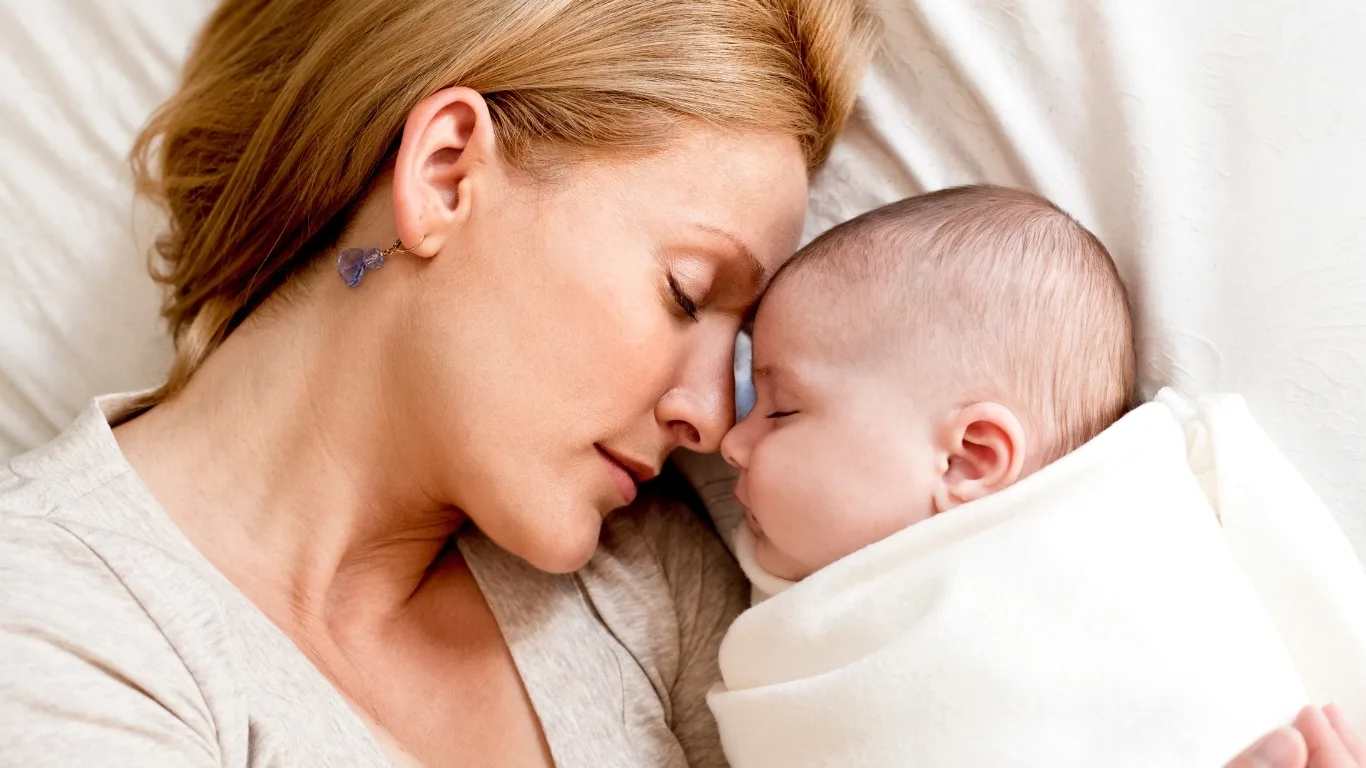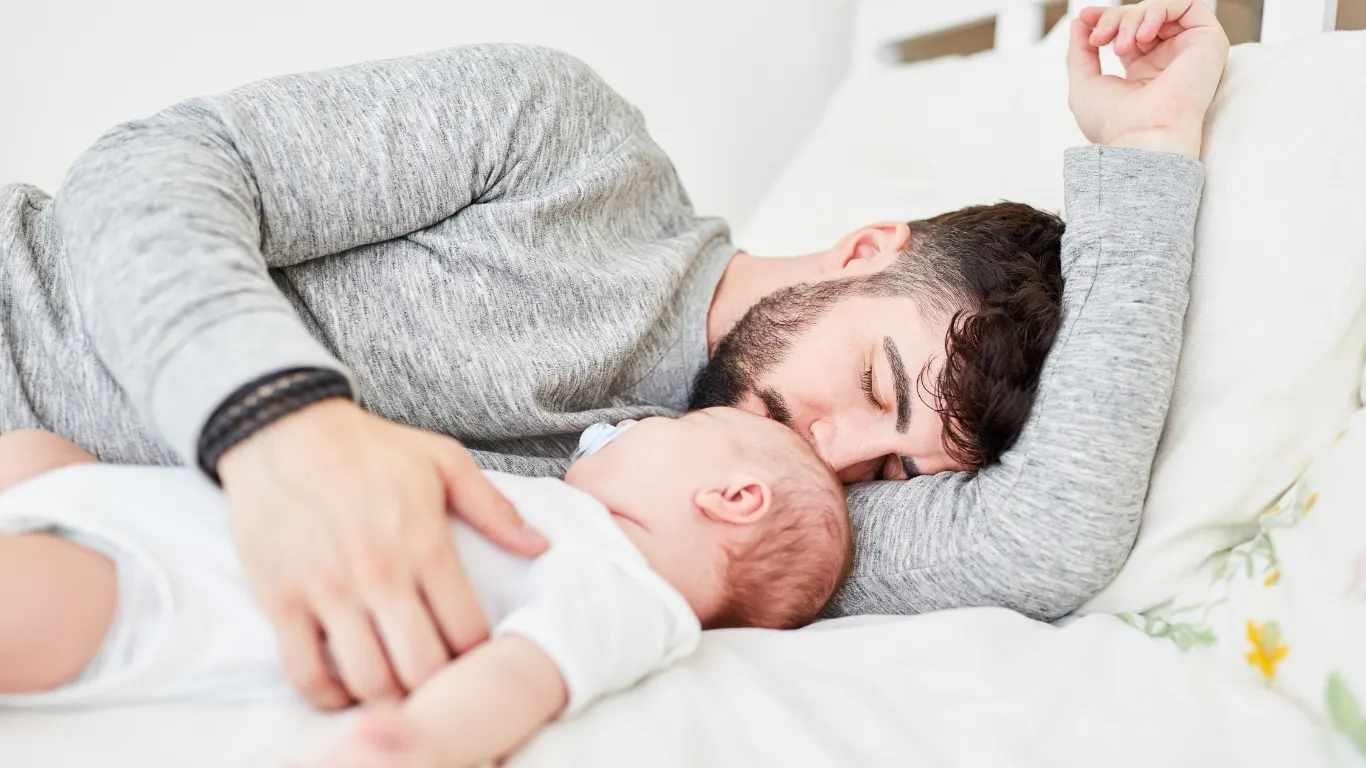Welcoming a new baby into your home is one of the most exciting and overwhelming experiences, and advice for new parents can be incredibly helpful during this time. Amid all the joy and sleepless nights, one of the key questions every new parent asks is: "How long should your baby sleep in your room?" Choosing the appropriate sleep arrangement for your newborn is essential, as it guarantees their safety while also providing you with peace of mind as a parent.. In this article, we'll explore the recommended guidelines, the benefits of room-sharing, and practical advice for a smooth transition when your baby moves into their own space.
Why Is It Important to Have a Safe Sleep Environment?
When thinking about how long your baby should sleep in your room, it’s important to also consider the quality of their sleep environment. A safe sleep environment is critical for reducing the risk of SIDS and ensuring that your baby gets restful sleep. Your baby's crib should be placed in a location that is free from drafts, direct sunlight, or noisy household appliances that could disrupt their sleep.
Room temperature is another important consideration. Babies sleep best in a cool room, between 68°F and 72°F (20°C-22°C). Overheating can increase the risk of SIDS, so it's essential to dress your baby appropriately for the temperature and avoid heavy blankets.
While room-sharing has significant benefits, making sure your baby's sleep environment is safe and comfortable is equally important for their well-being.
What Are the Guidelines for Room-Sharing?
Many parents wonder how long their baby should sleep in the same room. The American Academy of Pediatrics (AAP) recommends that infants sleep in the same room as their parents for at least the first six months, and ideally, up to one year. This room-sharing arrangement has been shown to reduce the risk of Sudden Infant Death Syndrome (SIDS) by as much as 50%. By keeping your baby close, you can monitor their breathing patterns and respond quickly, making room-sharing an essential practice during those early months.
It's important to note that room-sharing does not mean bed-sharing. While it may be tempting to bring your baby into bed with you, especially during late-night feedings, this can increase the risk of suffocation and other hazards. Instead, place your baby in a separate crib or bassinet within the room. This allows you and your baby to get the rest you need while maintaining a safe sleeping environment.
What Are the Benefits of Room-Sharing?
Room-sharing offers numerous benefits for both parents and babies. In addition to reducing the risk of SIDS, having your baby sleep in your room makes nighttime feedings and comforting much easier. Rather than walking to another room, you can quickly attend to your baby’s needs, allowing both of you to settle back into sleep more quickly.
Another significant benefit is the sense of closeness and bonding that comes with having your baby nearby. Newborns thrive on the comforting presence of their parents, and room-sharing can provide a sense of security that helps your baby adjust to the outside world. For parents, hearing your baby’s soft breathing and movements can provide peace of mind, especially during those early months when everything feels new and uncertain.
How Long Should Your Baby Sleep in Your Room before Transitioning to Their own?
How long your baby should sleep in your room depends on several factors, including their age, your comfort level, and their ability to sleep independently. Room-sharing is highly recommended for at least the first six months to one year, as it offers numerous benefits for both safety and convenience.
By following the guidelines and paying attention to your baby’s needs, you can ensure a safe, comfortable, and restful sleep environment for your little one. When the time comes to transition them to their room, remember to take it slow and provide plenty of reassurance.
When Should You Transition Your Baby to Their Room?
While room-sharing is beneficial, the time will eventually come when your baby is ready for their room. Many parents find the idea of this transition daunting, but it's a natural part of your baby's growth and development. So, how long should your baby sleep in your room before moving to their own space?
Most experts recommend transitioning your baby between six months and one year, depending on your comfort level and your baby’s readiness. Some signs that your baby may be ready for their room include longer stretches of uninterrupted sleep, a more predictable sleep schedule, and the ability to self-soothe when they wake up at night.
If you’re unsure about when to make the transition, it’s a good idea to start with naps in their room to ease them into the change. Gradually increasing the time they spend in their own space can make the process smoother for both you and your baby.
What Role Does Routine Play in Your Baby's Sleep?
One of the best ways to ensure that your baby gets restful sleep is to establish a consistent routine. Babies thrive on predictability, and having a bedtime routine can signal to your baby that it's time to wind down and prepare for sleep. This can include feeding, a bath, a lullaby, or reading a book together. Whatever routine you choose, make sure it is calming and consistent to help your baby understand that bedtime is approaching.
Creating a consistent sleep schedule also helps your baby establish a circadian rhythm, which is their internal clock for when to sleep and wake. Over time, this can lead to better sleep for both you and your baby.
How to Make the Transition Easier
Transitioning your baby to their own room can be challenging, but there are steps you can take to make the process easier. Start by creating a calming bedtime routine that your baby can associate with sleep, such as reading a book, singing a lullaby, or giving them a warm bath. Consistency is key, so try to stick to the same routine each night to signal to your baby that it's time for sleep.
Another important factor is creating a comfortable sleep environment in your baby’s room. Make sure the crib is safe, with a firm mattress and no loose bedding or toys that could pose a suffocation hazard. Consider using a white noise machine to drown out any household noises that might disturb your baby’s sleep.
If your baby seems hesitant or fussy about the change, try spending some time in their room with them during the day to help them feel more comfortable. Play with them in their crib, talk to them, and make the space feel like a safe and familiar place.
How Can Silvia Mozer of RE/MAX Elite Help You?
As a new parent, you're balancing numerous responsibilities, from managing your baby's sleep to considering your family's long-term needs, such as finding the perfect home. Whether you’re expecting your first baby or planning for more children in the future, having a home that meets your growing family's needs is crucial.
Silvia Mozer, one of the best realtors in Melbourne, Florida, can help you find a home that is both safe and comfortable for your family. With years of experience in the real estate industry and a deep understanding of the needs of young families, Silvia is dedicated to helping you find a space that supports your lifestyle.
If you're ready to explore your options and find the perfect home, reach out to Silvia Mozer at RE/MAX Elite for expert guidance and personalized service. She will walk you through the process, ensuring that your home-buying experience is as smooth as possible. Visit Silvia Mozer's website today and discover how she can assist you in finding a home that fits your family's needs perfectly or call/ text Silvia Mozer at (321) 720-2038 to make the best move for your family’s future!







